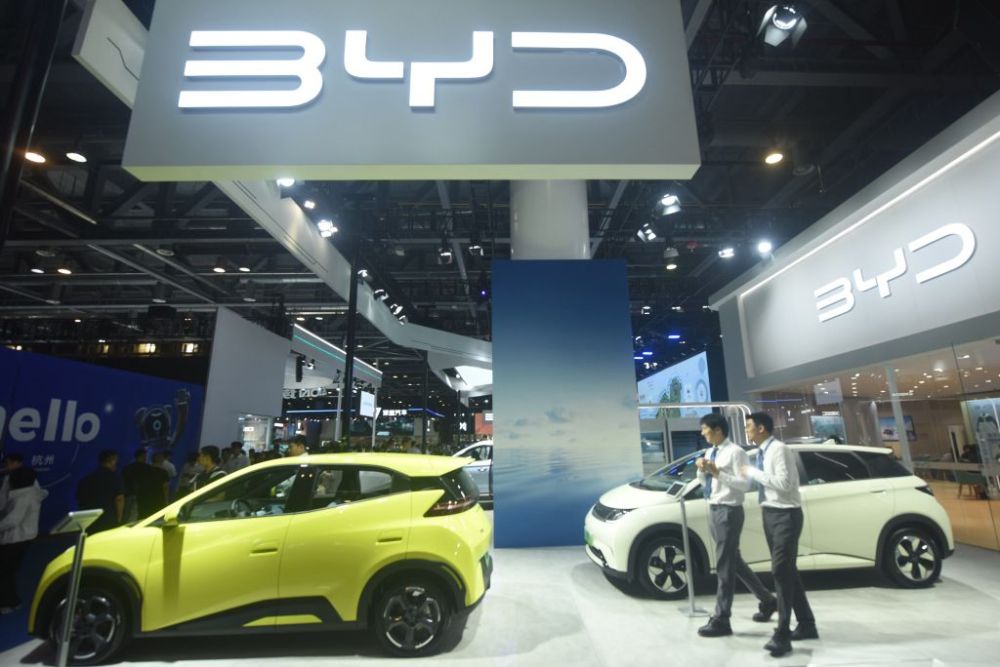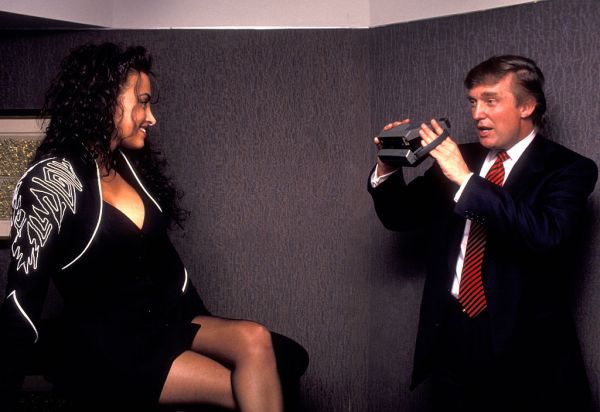One of the nice things about free trade is that it allows rich countries to outsource some of the expenses of costly social policies.
But first, a bit of prelude: The fact that a policy is costly doesn’t tell you anything about whether it is a good policy or a bad one—only that it imposes significant expenses. Most people favor workplace-safety rules, minimum wages, the prohibition of child labor, environmental standards, etc. (Oh, you sentimentalists!) But even if you like every rule implemented under OSHA, you can see that compliance with these rules imposes costs. If the costs are large enough, they will create incentives for firms or consumers to change their behavior: substituting capital for labor (as in grocery store self-checkouts), outsourcing production of certain goods to places where the labor market is more suited to their needs, or, in the case of consumers, shifting purchases to less-expensive goods made in places without all those OSHA and environmental rules. While this can certainly create disruption in the lives of individuals and families, none of that is necessarily good or bad on its own from a macro point of view. Things change in productive economies—that’s a big part of what makes them productive.
We tend to get a distorted view of trade issues because we think too much about consumer goods, which often bear labels reading “Made in China” or some such. But most things the United States exports don’t come with “Made in USA” labels on them, because they are capital goods (integrated circuits by themselves make up 2.55 percent of U.S. exports by value), commodities (at more than 7 percent, refined petroleum is the largest constituent of U.S. exports), agricultural produce (soybeans are 1.77 percent of U.S. exports), etc. We often think of international trade competition in terms of automobiles, but that is because Americans love cars, not because cars are so economically important: Packaged medicine and medical instruments together make up 3.7 percent of exports, as opposed to only 2.95 percent for automobiles.
U.S. producers lead the world when it comes to petroleum and agricultural goods. U.S. firms also tend to do better at the high end of the market for manufactured goods, which is no surprise—while you’ll find some interesting numbers in little dots such as Luxembourg and Singapore, the United States is by far the richest major country in the world, with a GDP per capita nearly 60 percent higher than Germany’s and at about twice the average in the European Union. So you can go into Brooks Brothers and buy a shirt made in the United States that will cost about $200, or you can go into Jos. A. Bank and buy a shirt made in Honduras for about $20. They aren’t the same product—they are differentiated by more than price. And it is good that both of them are on the market: Some Americans want fancier shirts, and some of them need to spend as little on clothing as they can. Free economies are good at supplying a diversity of needs. You can impose the costs that make U.S. labor more expensive without punishing poor people by making them all pay $200 for their shirts.
But the story we tell ourselves about U.S. production versus production in Honduras—or, more geopolitically significant, China—isn’t exactly the right story. While U.S. social policies add expenses for U.S. producers, those aren’t the main reason U.S. labor is relatively expensive or the reason so many other inputs are relatively expensive in the United States. You could put OSHA rules and U.S. taxes and all the rest of it on Haiti and you wouldn’t see wages (i.e., the price of labor) in Port-au-Prince rise to what workers make in Austin. That’s because wages aren’t set on a cost-plus basis the way some people seem to imagine they are—like every other price in a free economy, wages are set by supply and demand.
It costs just as much to educate and train a first-rate professor of art history as it does a first-rate professor of computer science—and the art history professor no doubt works just as hard and loves his family and deserves good things—but he probably isn’t going to make as much money as the computer-science professor, whose next-best offer is at Google or Apple or Intel rather than, you know, Wendy’s. It’s just supply and demand. And because there is so much productive capital in the United States and such a large domestic market for goods and services, there is tons of demand for U.S. labor in general—which is why our art history professors make a lot more than their counterparts in, say, Venezuela.
Back when he was a first-rate economist instead of a third-rate columnist, Paul Krugman wrote a famous essay titled Competitiveness: A Dangerous Obsession. His argument was that the then-regnant dogma associated with the Clinton administration and with the so-called New Democrats was based on a misunderstanding of how the world economy actually works. Krugman wrote:
The rhetoric of competitiveness—the view that, in the words of President Clinton, each nation is “like a big corporation competing in the global marketplace”—has become pervasive among opinion leaders throughout the world. People who believe themselves to be sophisticated about the subject take it for granted that the economic problem facing any modern nation is essentially one of competing on world markets—that the United States and Japan are competitors in the same sense that Coca-Cola competes with Pepsi—and are unaware that anyone might seriously question that proposition. Every few months a new best-seller warns the American public of the dire consequences of losing the “race” for the 21st century.
… Countries do not compete with each other the way corporations do. Coke and Pepsi are almost purely rivals: only a negligible fraction of Coca-Cola’s sales go to Pepsi workers, only a negligible fraction of the goods Coca-Cola workers buy are Pepsi products. So if Pepsi is successful, it tends to be at Coke’s expense. But the major industrial countries, while they sell products that compete with each other, are also each other’s main export markets and each other’s main suppliers of useful imports. If the European economy does well, it need not be at U.S. expense; indeed, if anything a successful European economy is likely to help the U.S. economy by providing it with larger markets and selling it goods of superior quality at lower prices.
International trade, then, is not a zero-sum game. When productivity rises in Japan, the main result is a rise in Japanese real wages; American or European wages are in principle at least as likely to rise as to fall, and in practice seem to be virtually unaffected.
It would be possible to belabor the point, but the moral is clear: while competitive problems could arise in principle, as a practical, empirical matter the major nations of the world are not to any significant degree in economic competition with each other. Of course, there is always a rivalry for status and power—countries that grow faster will see their political rank rise. So it is always interesting to compare countries. But asserting that Japanese growth diminishes U.S. status is very different from saying that it reduces the U.S. standard of living—and it is the latter that the rhetoric of competitiveness asserts.
Rather than thinking about this in the simpleminded competitiveness terms that Krugman rightly rejects, it might make more sense to think about this as a question of specialization across national borders. And that takes us back to the opening: There are certain rich-world policies, taxes, and rules that will shape economic incentives in such a way as to make the production of certain goods more efficient in other markets. Those policies are one factor among many, and it is not the case that wages are lower in China or Honduras simply because Chinese or Honduran workers are willing to accept a lower standard of living. It is not the case the United States, Europe, Japan, etc., are rich because wages are high—wages are high in those countries because they are rich, and, hence, there is more competition for labor and most everything else. China isn’t relatively poor because manufacturers there pay workers relatively low wages; manufacturers in China are able to pay relatively low wages because China is relatively poor, and there isn’t much demand for Chinese labor at German wages.
To reiterate the earlier point: International shifts in production in response to costs imposed by rich-country governments (and, more importantly, by the generally higher costs of production in rich countries) are, in themselves, neither good nor bad from an economic point of view. But they can be very, very bad from a political point of view. If you are, for example, a progressive American political party insisting that we simply must use the force of the state to execute a fundamental transformation of key sectors of the economy—energy production, transportation, housing, etc.—and that this grand transformation can be effected without imposing any unpleasant costs on American workers or consumers, you are promising an awful lot. You are, in effect, telling people that they can—must!—drive Teslas without paying Tesla prices. And you can achieve that: with trade.
And so the current convulsions in Washington and Brussels about Chinese EVs: Climate change is an existential emergency, they tell us, and it is essential that we mitigate the effects of vehicular emissions by switching to EVs where possible. But voters do not want to pay high prices for EVs, and domestic producers do not want to be made to compete with EVs made in places—namely China—where it is relatively cheap to make them. So, we must drive EVs, but we cannot drive either the expensive ones or the inexpensive ones. The Biden administration is putting a 100 percent tariff on Chinese EVs, the European Union is putting an almost 50 percent tariff on Chinese EVs, and Donald Trump is out there promising to outdo whatever Biden does, bigly.
You can have your EVs and your EV mandates. You can have your EVs without imposing enormous costs on American consumers who are used to paying reasonable prices and getting excellent vehicles from good old-fashioned American manufacturers such as … Toyota and Mercedes-Benz. But what you can’t have is all that at “Made in China” prices with “Made in the USA” manufacturing costs. Cheap, good, American-made: Pick two.
(The same holds more or less true for Europe.)
Politicians never want to pick two. They don’t want to acknowledge that there are tradeoffs and that their policies impose real costs on real people and real firms—with real economic consequences. And so when the politicians create demand for inexpensive EVs and create conditions under which it is a lot easier to produce inexpensive EVs in China than in Michigan or Sochaux, they also must then do the essential thing and prevent consumers from acting on the incentives the politicians have created.
So we get some version of: You must buy an EV, you must not buy an EV.
I’m fine with paying $200 for a shirt made in the United States. (But I’m not much of an economic patriot: If I were very rich, I’d probably cough up the $800 bucks for shirts made at Place Vendôme. Pity the fool with Charvet tastes and a Brooks Brothers budget.) I’m not fine with forcing everybody else to prioritize their spending the same (possibly dumb) way I do.
But, then, I’m not the one telling people what kind of car they have to drive and then putting a 100 percent tax on the least expensive options.
(More) Economics for English Majors
Donald Trump has an idea for improving the federal tax code: a massive new tax on gasoline and prescription drugs, a tax that would triple the price of these and other essential goods.
You know what? I kind of like it.
Trump isn’t calling his proposed massive new tax on gasoline and prescription drugs a “massive new tax on gasoline and prescription drugs,” of course—he’s calling it a tariff. Meeting with Republicans on Capitol Hill last week, Trump floated the idea—fantastical, possibly idiotic, and never gonna happen—of replacing the current tax code with an all-tariff revenue system. That means a sales tax paid by Americans on imports.
And what do Americans import? As noted above, those “Made in China” labels on flip-flops at Walmart are misleading. The biggest constituents of U.S. imports are—this may seem counterintuitive, if you don’t really understand how a big economy works—the same as U.S. exports: crude and refined petroleum products, natural gas, and other hydrocarbons; “packaged medicaments,” in the lingo of the government; electronics and machine parts, etc. Many of our imports do not compete with domestically produced goods at all but are instead critical components of those goods. Weirdly enough, insulated wire by itself makes up nearly 1 percent of U.S. imports; office machine parts are nearly 2 percent of imports. You see a lot of shoes labeled “Made in China” or “Made in Vietnam” or wherever, but, in terms of value, we import more gas turbines. But you don’t buy gas turbines at Macy’s, so those imports are less visible.
The federal government relied heavily on tariffs for revenue before there was an income tax. At some points in our history, the federal government relied almost exclusively on tariffs for revenue. But we had a much smaller federal government in 1910 than we do today. I’d be happy to see it pared back to something more like that.
Donald Trump would not do that, of course. Trump is an ignoramus when it comes to economics, and he proposes to fund a massive welfare state—he is adamantly against reforming Social Security or Medicare—with an 18th-century tax system that once had funded very little more than the navy and the construction of postal roads.
(Do you know what the United States also had in its early history? Open borders.)
Trump, like most advocates of tariffs, doesn’t understand how they work. Tariffs are a sales tax paid by consumers on imported goods—not, as advocates will tell you, a tax paid by nefarious foreigners who want to sneak into our markets and oppress Americans with … abundant goods at attractive prices. Tariffs may or may not have the effect of protecting some domestic businesses; many U.S. firms do not actually compete head-to-head with imports, because a lot of what Americans consume is stuff that isn’t made here, for all sorts of reasons. When U.S. firms do compete against imports in the domestic market, the most reliable effect of tariffs is to raise prices. Our captains of industry, as it turns out, like money, and so do their shareholders—and when taxes on competitors give them the opportunity to raise prices, they will take the opportunity.
If you rent a hotel room in Manhattan, for example, you pay a total of about 15 percent in hotel taxes. (Like everything in New York, it’s complicated, but it’s about 15 percent, all-in.) Now, imagine that you are a redheaded dictator, and you really want to do something for other redheaded people, given all of the oppression and unhappiness gingers have been made to suffer over the years. So you decide that redheaded hotel owners in New York City don’t have to pay the 15 percent tax. What do you think they do in response? Cut their rates? Pay their employees more? Probably not. The price of a Manhattan hotel room is set in a very competitive marketplace, and so are the wages for Manhattan hotel employees. (Running a hotel in Manhattan, especially a high-end hotel, is a great business—unless you are stupid.) Of course, you have to compete on price for customers and compete on wages for good help, but you probably don’t have to take 15 percent off to be competitive—presumably, if you already were in the market in the first place, you were reasonably competitive before the tax advantage. So, most likely, you do what businessmen have been doing with such windfalls since time immemorial: You pocket the money, and maybe buy a boat.
If you put a 200 percent tariff on imported gasoline—meaning that the price goes from x to 3x—you can be confident that importers will try to pass on that expense to consumers, though distributors and retailers will probably also take a hit. Now, when the price of imported gasoline goes from $3.25 to $9.75, the domestic producers are going to be very, very tempted to raise their prices to about $9.72. And, of course, a lot of those domestic producers are going to get hit in the ass, too, because they make some of their gasoline out of imported crude oil.
Why a 200 percent tariff, you ask? Well, here’s why: In 2022, the federal government spent $6.13 trillion dollars; in 2022, total imports were about $3.2 trillion. Ergo, you’d need a tariff of 191.5 percent to pay for federal spending, so, call it 200 percent, assuming—and it is a very, very bad assumption!—that the 200 percent tax wouldn’t cause any changes in the behavior of consumers or firms.
Of course, you wouldn’t get what the tariff advocates promise: a renaissance in U.S. manufacturing when industry is freed from competition from imports. The availability of imports is only one reason that many goods are not produced in the United States. For one thing, lots of raw materials simply are not available within our borders, as blessed with natural resources as these United States are. India is the world’s largest mango producer—by far—but not because Narendra Modi’s government has been so clever with its mango policy.
I rather expect that making gasoline, electricity, and prescription drugs—and mobile phones, computers, gas turbines, tires, T-shirts, etc.—three times more expensive across the board would not be politically popular. Even the local T-shirt cartel bosses would complain about their gasoline bills and the cost of a new gas turbine. There would, of course, be immediate pressure for exceptions and special treatment for politically sensitive goods, which would undermine the whole system.
A better alternative would be a tax on a single critical good, such as energy. That’s what “carbon pricing” really amounts to: an energy tax. Because basically everything anybody makes, consumes, uses, or eats is made with energy—from growing food to powering factories to transporting goods to market—a tax on energy has the advantage of being spread throughout the economy in ways that make tax avoidance very difficult and economically inefficient. Assuming that you could stop refineries from engaging in black-market diesel sales, everybody would pay the tax in a way determined by his consumption patterns.
A good tax system does one big thing (produce sufficient revenue for public needs) and it avoids doing one big thing (distort productive economic activity). A big carbon tax would distort economic activity, but it would mainly distort it in ways that carbon-tax advocates would celebrate: encouraging less overall energy consumption and a switch to lower-carbon sources of energy. The individual income tax, the supplementary payroll tax that supposedly funds Social Security and Medicare, and the business income tax all produce lots of inefficient economic responses. Consumption taxes—sales taxes, of which tariffs are an example—do, too, though they arguably can be designed, in theory, to produce less distortion.
Tariff advocates want distortion: They want U.S. consumers to behave in efficient ways, substituting inferior domestic goods for superior imports. (Of course they are inferior—we have the revealed preferences of consumers to confirm that.) They have this batty idea in their heads that Americans are victimized by foreigners who want to provide them with goods and services at better prices than they can get elsewhere. It’s bananas, but it’s a longstanding superstition.
The problem, of course, is that most U.S. exports go to the same countries that provide most U.S. imports: Canada, Mexico, China, and Japan. If you think about it for two seconds, this makes sense: When some scheming Canadian victimizes an American by selling him good, affordable lumber out of which to build a house, that Canadian ends up with a pocketful of gently depreciating U.S. dollars. What can he do with them? He can buy stuff that is priced in dollars, meaning that he can buy American-sourced goods or invest in dollar-denominated assets, such as shares in U.S. businesses. (He can go to the foreign exchange market and swap them for loonies, sure, but then somebody else has some dollars to spend, with the same choices.)
In some countries, people with dollars mostly use those dollars to buy U.S.-made goods, and, in other countries, people with dollars mostly use them to invest in U.S. assets. In the former case, we have a trade surplus with that country, and, in the latter case, we have a trade deficit, which is the flip-side of a capital surplus. Trade deficits aren’t really a thing—a “trade deficit” is a figure of speech. But our negative balance of trade with China, for example, doesn’t come from Beijing being so sneaky when it comes to trade policy—it comes from Beijing being constrained by economic reality to invest in a lot of U.S. Treasury bonds and other dollar-denominated assets, because China’s currency is crap compared to the U.S. dollar, and everybody knows it.
This is why poor countries hold a lot of dollars in their reserves if they want to be taken seriously as economic players. They get those dollars by selling goods to Americans, and then they use those dollars to buy assets, mainly U.S. government debt, which has the effect of keeping interest rates on government debt low and thereby subsidizing Americans’ higher standards of living. They don’t do this because they love us, of course—as Adam Smith knew about the baker and the butcher, they have their own reasons!—but it’s good for Americans, nonetheless.
“But what about Detroit? Huh? Harrumph!”
Cars are an emotionally charged subject for Americans. But do you know what would do a lot more to make GM products more competitive against Toyota or BMW? Building better cars at better prices. You can’t tax your way into a world in which the Chevy Equinox doesn’t suck.
Words about Words
I made, and corrected, a typo above, having written not “pity the fool” but “pithy the fool.” I think Pithy the Fool would make a good title for a memoir, but I’ve already settled on The Gun Didn’t Know I Was Loaded.
In Other Wordiness …
Headline: “Trump’s rapper schtick is for MAGA.”
Shtick is one of those words that gets misspelled frequently. I think there is just something kind of Germanic/Yiddish in the sch formation, as in schnauzer or Schmidt, and shtick sounds like it should be in that category. But the word is shtick. It is indeed of Yiddish origin, borrowed from the German word Stück, meaning “a piece,” comparable to the English comedy-jargon expression “a bit.”
In the wider world of illiteracy, another headline: “‘Bridgerton’ gives us hiatus interruptus.” Ye gods. A hiatus is an interruption, as in a gap or a pause. Hiatus interruptus would make sense—it would still be stupid, but it would make sense—if we were talking about a hiatus that had itself been interrupted, as in a professor coming back early from a sabbatical. But the column is just about a regular ol’ hiatus.
Dog Latin terms such as hiatus interruptus are variations of coitus interruptus, a fancy way of indicating the most ancient form of birth control. I guess because the article is about Bridgerton, which I’ve never seen but take to be a pretty sexed-up show, the indirect reference to coitus seemed clever to somebody.
Somebody dumb.
Also …
I’m a watch guy, so I get a lot of interesting spam meant for rich people. The latest is from Tourneau bearing the headline: “Wear art on your wrist.” Well, what admirer of high horology doesn’t want to wear art on his wrist? The items referenced include … a foot-high, 16-pound mechanical desk clock. (By Ulysse Nardin, about $73,000.) Flava Flav couldn’t wear the thing—not even with a high-tech suspension system and a back brace—much less wear it on his wrist. Pay attention, marketing weasels!
And Furthermore …
From The Hill: “Stephanopoulos: Biggest debate question should be ‘Who won the last election?’” That’s a great question. I should have thought of that. Oh, I did. I hope you’re paid up, Stephanopoulos.
Speaking of George Stephanopoulos, a Stephanopoulos-related story that is only tangentially about politics. Stephanopoulos was a pretty big deal when I was in college and he was in the Clinton administration. Clever young fellow—you know the type. In 1995, Stephanopoulos was arrested after a car accident and charged with leaving the scene of an accident and driving with an expired license. The assumption—never proved—was that he had fled the scene because he’d been drinking and wanted to avoid a DUI charge.
What I remembered from the story was that he was driving a red Honda CRX. I was surprised—and kind of disappointed! Here was this guy who was famous, accomplished, seated at the right hand of big-time power, and he drove a basic Honda—not even a new one! At the time, I didn’t understand that it is the very disconnect between money, power, and celebrity that drives so much of the social dynamic of life in Washington and in the media. (I should have listened to Bernie White.) I’d later experience this for myself when friends who would see me on television (I used to do the pundit panels on Fox News and elsewhere when I was in New York) would assume that I had private-jet money because they’d seen me on television, unaware that I didn’t even get paid for that stuff, that it’s just one of the things you do if you work in a particular kind of journalism.
CRX. Man, what a disappointment. But then again, I used to have a really cool motorcycle until a few months ago, when I bought … a Honda. A minivan, of course.
And Furtherermore …
Slate still can’t get bump stocks right. Do I even need to point out that this is, you know, not true?
When done correctly, by contrast, “bump firing” can then unleash a spray of bullets without repeated pulls of the trigger, and at the rate of an automatic weapon.
In bump firing, the trigger is actuated one time for each round fired, exactly as with an ordinary semiautomatic weapon, which is what a rifle with a bump stock is. Faster, yes; automatic, no.
Everybody is all … up in arms? … over the Supreme Court’s bump-stock decision. Well. Does anybody remember who passes the laws in this country? Congress does! And bump-stock bans have been proposed in Congress, which has, so far, declined to take them up. It’s a silly and symbolic idea—you don’t need a bump-stock to bump-fire; it just makes it easier—but a bump-stock ban would probably stand Second Amendment scrutiny. I can’t see why it wouldn’t. If Congress were to, you know, pass a law or something.
Elsewhere …
Speaking of minivans, Father’s Day hits a little different for me these days—four babies in about 17 months. More in the New York Post.
You can buy my most recent book, Big White Ghetto, here.
You can buy my other books here.
You can see my New York Post columns here.
Please subscribe to The Dispatch if you haven’t.
You can check out “How the World Works,” a series of interviews on work I’m doing for the Competitive Enterprise Institute, here.
In Conclusion
The Canadians are apparently worried about the prospect of a civil war in the United States. I think there is far too much apocalyptic fantasy in our politics and discourse already, and I do not think that a civil war is very likely. But, still, one can see how the idea would spook the ’Nucks. If they were clever, they’d figure out a way to build a wall and get America to pay for it.







Please note that we at The Dispatch hold ourselves, our work, and our commenters to a higher standard than other places on the internet. We welcome comments that foster genuine debate or discussion—including comments critical of us or our work—but responses that include ad hominem attacks on fellow Dispatch members or are intended to stoke fear and anger may be moderated.
With your membership, you only have the ability to comment on The Morning Dispatch articles. Consider upgrading to join the conversation everywhere.